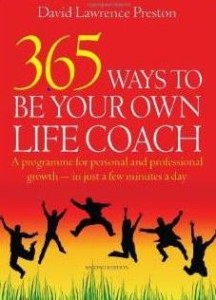Motivation is what gives us a reason for action. For instance, when we are hungry, we are moved to find food. (Physical deprivation produces powerful motivation.) Well motivated people have more enthusiasm, more energy and are less likely to give up. And they get more done.
Early experiments on animals concluded that we are motivated quite simply by a ‘felt need’. Place a starving rat and a piece of cheese in a maze and it will search for the food. Repeat this daily, and after a few days the rat doesn’t need to search, it goes straight to its target. The rat is motivated by its physical state (i.e. it has a need – hunger – which induces stress), and its desired object (the cheese).
One of the great psychologists of the last century, Abraham Maslow, categorised human needs into a five level hierarchy:
At the ‘lowest’ level are basic physiological needs (food, water, oxygen, sleep etc.). Once these are satisfied, individuals can turn their attention to Level Two – safety needs (freedom from physical threats and anxiety).
Level Three needs are about belonging – the need to associate and have good relationships with others, to love and be loved.
Level Four needs, according to Maslow, only become important when physiological, safety and belonging needs are met. They concern self-esteem, confidence, achievement and status. Crucial to this is the feeling that we are exercising control over our situation rather than being controlled by it.
On the ‘highest’ level is self-actualisation – the need for self-fulfilment and to realise our potential. Humans need to use our creativity, to experience truth and beauty, and ultimately transcend our physical limitations and experience the spiritual (non-physical) aspects of life.
However, there is plenty of evidence that Maslow’s theory is too simplistic. Many people with few material possessions and who live in hazardous circumstances enjoy fulfilling lives and have dignity and self-respect.
Austrian psychiatrist, Viktor Frankl spent several years in a Nazi concentration camp and was struck by the way the inmates carried out acts of kindness and self-sacrifice which seemed at odds with their surroundings. He saw people sharing their meagre rations, supporting and protecting each other. He concluded that those with a passionate reason for living – an unfulfilled ambition, a business to go back to, family ties and so on – were more resilient and the most likely to survive.
In his book, ‘Man’s Search for Meaning’, Frankl showed how those with a strong sense of purpose in most walks of life are the happiest and most successful. He wrote, ‘Ever more, people today have the means to live, but no meaning to live for.’
The Basis of Motivation
The basis of motivation is, in essence, simple. We are motivated by:
1. A felt need (whether physical, mental or emotional) which causes tension, and
2. The amount of ‘pleasure’ or ‘pain’ that we believe will result from any given action. We weigh up the choices available to us and choose those which appear to offer the most pleasure and least pain.
To return to the rat briefly, it has a ‘felt need’ for food. It knows from experience that eating relieves this tension and is pleasurable, therefore it goes looking for food. Then once it has fed, it is content to go back to sleep.
Pleasure and pain
Only an unsatisfied need motivates. Say you’re relaxing on a sunny beach after a good lunch, with no pressing engagements. You’re happy to stay the whole afternoon! But, as mealtime approaches, you begin to feel restless. You drag yourself off to get something to eat. What happens? Well, the discomfort of an empty stomach gradually overtakes the pleasure of sunbathing and the balance tips in favour of taking action.
Most people are more motivated by the desire to avoid pain than a longing for pleasure. They prefer to stay in their ‘comfort zones’ rather than strike out for new experiences, new attainments and new rewards.
But the reverse is true for high achievers. They are so attracted by the prospect of more ‘pleasure’, they are content to run the risk of some ‘pain’. They are more inspired by a vision of what they want that deterred by thoughts of fear and disappointment.
Others struggle on mainly because they dread the consequences of failure, e.g. their safety needs may be jeopardised by the threat of losing their savings, or their esteem needs threatened by losing face or driving a less prestigious car, etc.
Sometimes it’s more a matter of avoidance tactics. For instance, a young person who puts off revising in order to enjoy the short term pleasure of watching TV or going out with friends may simply be postponing the ‘pain’. Eventually the prospect of failing exams (and incurring parental displeasure) looms large, so he or she chooses the option which offers the least long term pain, and gets down to work.
The most powerful motivation comes from:
1. A vivid image/conception of what you want.
2. Strong desire, and
3. The extent that you believe you can succeed.
(1) and (3) can be cultivated, but in my experience (2) is either there or it isn’t. It’s hard to to create a burning desire artificially – if you know differently, please get in touch.
So what motivates you? How strong is your desire? Do you have a clear conception of what you want? Do you believe you can have it? If you can truthfully answer ‘very’ to Q2 and ‘yes’ to Qs 3 and 4 go for it! You’re motivated!
©David Lawrence Preston, 27.7.2016
Follow me on Facebook and Twitter @David_L_Preston
How to Books, 2010
blog.davidlawrencepreston.co.uk



